WORDLINKS 3: Exegesis and Hermeneutics (Pastoral Implications)
1. In the last session, we have said that through the years of biblical studies, many and diverse methods have been introduced to understand the text, and as these methods grow, our task of interpretation may also become so complicated. We were dealing with methods that examine “with distance”, or objectively, the text under study. So, until here, we are still dealing with text as an objective observer: we observe closely the text and its communication dynamics. But there are methods that also allow us to consider the active role of the reader of the text.
2. In the effort to consider the contemporary reader some methodological systems are proposed: (a) the world behind the text, (b) the world of the text, (d) the world in front of the text (reader).
3. In 1993, the Pontifical Biblical Commission published a document entitled The Interpretation of the Bible in the Church (IBC). It sets forth guidelines of engaging Biblical text. The document proposed a set of methods to be followed in engaging the text: (a) the Historico-Critical Method (Text-critical, Source-critical, Form-critical, Redaction-critical); (b) new methods of Literary Analysis (Rhetorical, Narrative, Semeiotic); (c) approches based on Tradition (Canonical, recourse to Jewish Traditions of interpretation, History of influence in the text); (d) approaches that utilize Human Sciences (Sociological, Cultural-Anthropological, Psychological); (e) and Contextual approaches (Liberationist, Feminist).
4. Since our final goal is not only exegesis but also to engage the text as faith text that would lead us to contemplation and humble service of love, then our engagement of the text is only complete when we include in the hermenuetical process our contemporary context. This leads us to some pastoral concerns in the task of biblical interpretation.
5. Exegesis and Hermeneutics: A Pastoral Concern (VD). Here we give attention to the relationship between exegesis and hermeneutics in the light of the Synod of the Word (2008) and the post-synodal apostolic exhortation Verbum Domini (2010).
6. The word "exegesis" derives from the Greek exégesis, exegéomai. To "enter" the texts and grasp their meaning, we need a key, or rather a bunch of keys. The word "hermeneutics" also derives from the Greek, precisely from the verb "ermeneúo." Hermeneutics, we mean the art of interpreting texts and especially interpreting the sacred texts. While the "exegesis" tries to discover and understand what the author wanted to communicate to his contemporaries, we understand "hermeneutics" here as it intends to understand what the text means and represents for us today.
7. Exegesis and Hermeneutics in Dialogue. According to Verbum Domini, "catholic exegetes must never forget that what they are interpreting is the word of God. Their common task is not finished when they have simply determined sources, defined forms, or explained literary procedures. They arrive at the true goal of their work only when they have explained the meaning of the biblical text as God's word for today" (VD 33). At the same time pastors, preachers, teachers, pastoralists, and catechists should train well and consult the works of the exegetes. There should not be a dichotomy between "exegetical process" and "believing hermeneutics," but rather a reciprocal and dialoguing relationship.
8. The Interpretive Process. Engaging with the text involves four sets of questions: What does the text say objectively? How does it say it? In what historical context it says it? And finally, what message does it communicate to me today? The first three questions direct to the text itself. There exists a distance from the reader and the text. On the other hand, the last question is different from previous ones because it eliminates the gap between reader and text. This process is what we call actualization of the text.The Sacred Scripture is open to multiple actualizations because it keeps talking to the men and women of all times and places. Biblical knowledge should not stop short at the language; it must seek to arrive at the reality of which the language speaks.
9. By Way of Conclusion. At the end of our journey, we want our reflection to be informed, to encourage readers to get closer more and more to the Word of God. Exegesis and hermeneutics, science and faith, study and prayer do not oppose each other but enrich each other in contributing to the unity of the interpretive process.
10. Pope Francis, in his address to the pariticipants of the General Assembly of the Catholic Biblical Federation in its 50th foundation anniversary (26 April 2019), said:
… the Bible is not an interesting collection of sacred books to be studied; it is the Word of God to be sown, a gift that the Risen Lord asks us to accept and distribute, so that we may have life in his name (cf. Jn 20:31).
Coming up: General Background of the Sacred Scriptures
Follow us at:
https://web.facebook.com/wordlinks.claret
Radio Veritas Asia (RVA), a media platform of the Catholic Church, aims to share Christ. RVA started in 1969 as a continental Catholic radio station to serve Asian countries in their respective local language, thus earning the tag “the Voice of Asian Christianity.” Responding to the emerging context, RVA embraced media platforms to connect with the global Asian audience via its 21 language websites and various social media platforms.










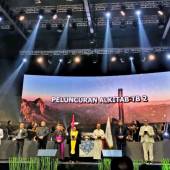
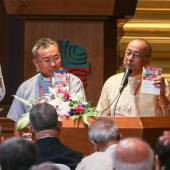

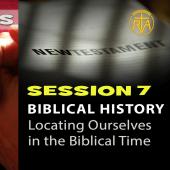
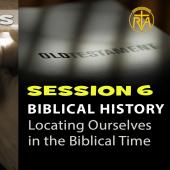
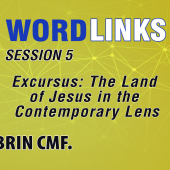
- Reply
Permalink